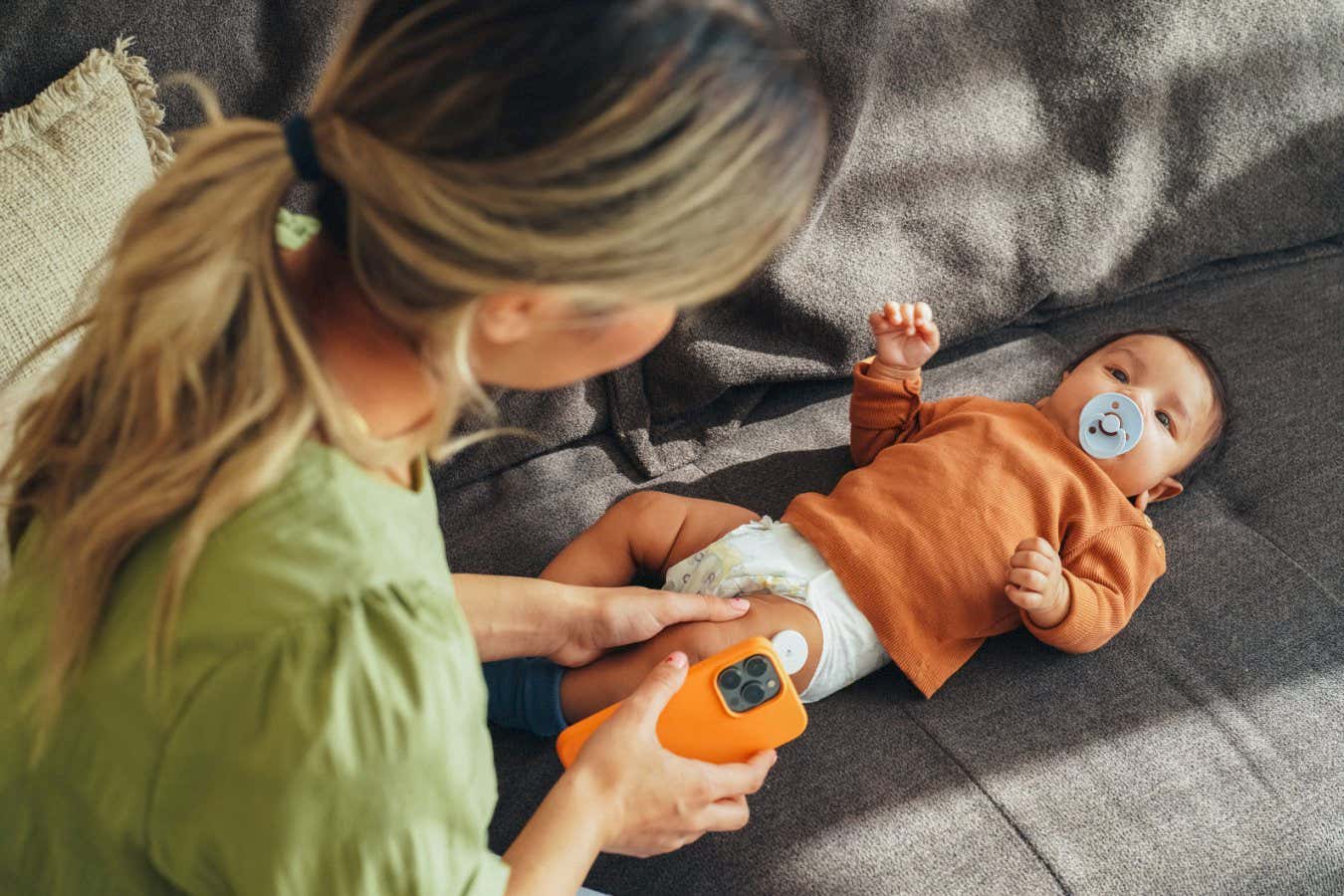Children between the ages of 4 months and 2 years seem more likely to have antibodies that attack insulin-producing cells, a feature of type 1 diabetes, if they have had covid-19, which may show how viral infections can lead to this type of diabetes
By Chen Ly
8 September 2023
A baby wearing a sensor for measuring blood glucose levels, which are affected by type 1 diabetes
martin-dm/Getty Images
Children between the ages of 4 months and 2 years old who have had covid-19 are more likely to have antibodies that attack insulin-producing cells, a feature of type 1 diabetes.
Insulin, an essential hormone that regulates the body’s blood sugar levels, is produced in the pancreas by islets of Langerhans, which are areas mainly made up cells called beta cells. In some cases, however, the body can develop an autoimmune response to these islets and produce autoantibodies against them.
Too many of these autoantibodies being created over time will kill enough islets to trigger the onset of type 1 diabetes, where the body is unable to produce its own insulin. “The presence of these autoantibodies more or less means that there’s a 100 per cent path to [type 1 diabetes],” says Anette-Gabriele Ziegler at the Technical University of Munich in Germany.
Advertisement
Read more:
Is covid-19 causing a global surge of diabetes cases?
One of the risk factors for type 1 diabetes is thought to be some viral infections, including SARS-CoV-2, the virus that causes covid-19. A rise in diabetes cases linked to covid-19 has been reported, but the mechanism behind it isn’t known, although some have been proposed.
For example, some viruses may be able to infect the beta cells, changing them and triggering an autoimmune response. Alternatively, some parts of a virus may be so similar to the structure of beta cells that the immune system ends up fighting the virus and the insulin-secreting cell.
